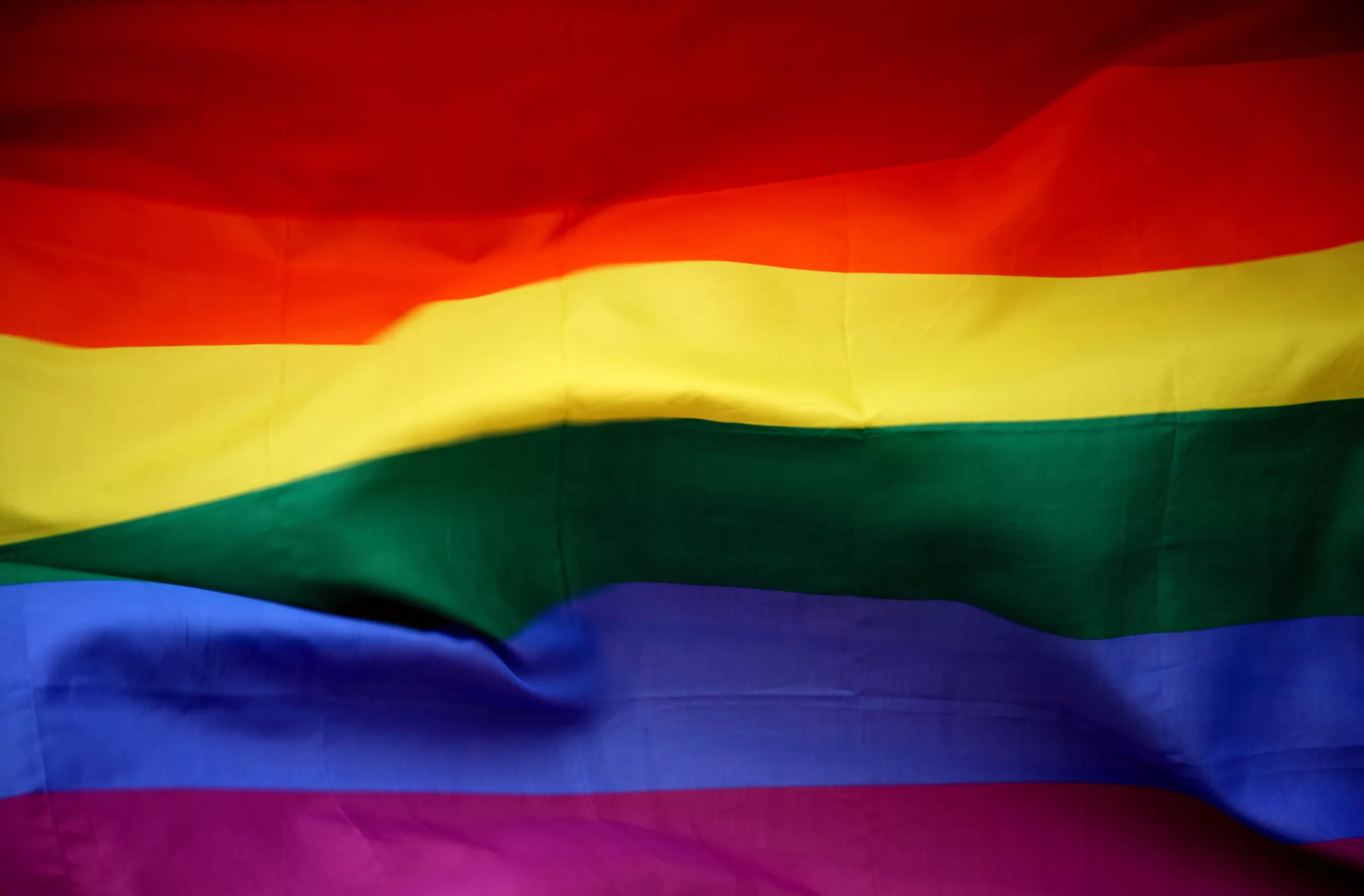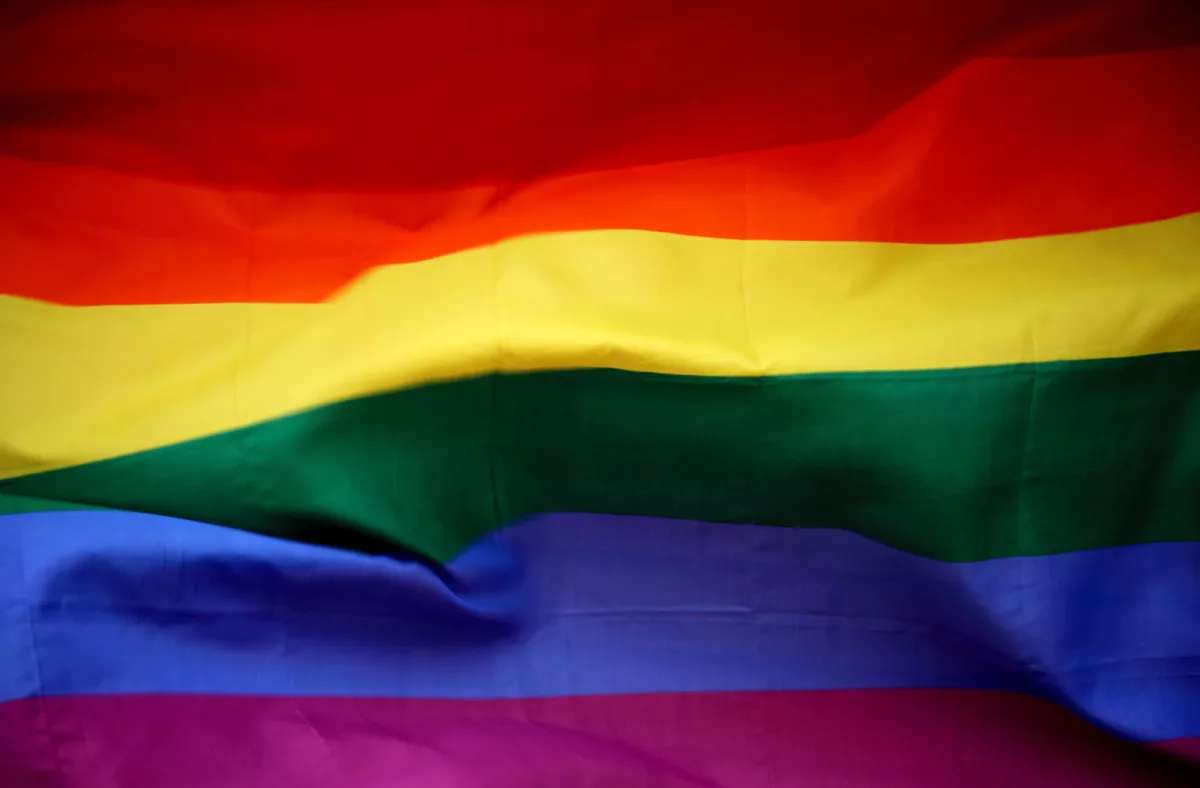Newsletter
How Toxic Masculinity Drives Homophobia in Prison
The phrase “toxic masculinity” is ubiquitous these days, but there are few places where it’s more all-consuming than in a men’s prison


How Toxic Masculinity Drives Homophobia in Prison
by Christopher Blackwell
The phrase “toxic masculinity” gets tossed around quite a lot these days, but there are few places where it’s more all-consuming than in a men’s prison. Washed-out beliefs about what it means to be a “real” man are ingrained into the culture of these institutions, fueling power structures dictated by dominance, violence, and control over those who can be most easily taken advantage of. Behind the razor wire fence, being openly gay, or even just perceived as gay, means existing in a system that sees you as weak and vulnerable—a potential target.
One day while walking the yard, my friend shared some personal news that forced me to confront the many ways these harmful norms had come to rule my life.
“I’m gay,” he blurted out. It sounded like he had to pry the words from his mouth.
Internally, I started panicking. The revelation felt like a direct attack on me and our years of friendship. I felt ashamed, as if I had done something wrong and everyone was watching.
“Stop fucking around,” I responded, unwilling to accept what he’d told me. “Why would you say something like that?”
Now, seven years later, my reaction still horrifies me. But to get to this point, I first had to understand why I acted the way I did. Through that process, I began challenging my homophobia and working to unlearn deeply entrenched assumptions about gender, sexuality, and what it means to be a man.
At the time, hyper-masculinity ruled my sense of self. Sentenced to decades in prison, I protected myself by projecting a hardened image. I embraced many of the shallowest traits of “manliness” as a matter of self-preservation. And truthfully, this didn’t begin with my incarceration. I grew up in a violent neighborhood where gangs, drug dealing, and sex work were rampant. If any of my friends were gay, they didn’t dare come out publicly. Being gay, we inaccurately believed, was incompatible with toughness.
Once my friend found the courage to come out to me, I faced a decision of my own: To remain loyal to one of the best friends I’d ever had, I would have to risk my reputation as a tough guy in prison.
It was a difficult choice. Prison is, unfortunately, not a constructive setting for introspection or critical thinking, even though it can play a crucial role in rehabilitation. When conformity is necessary for survival, it becomes even harder to question your beliefs and programming.
My initial fears proved correct. Once people started to hear that my friend was out, they quickly distanced themselves, whispering in corners and spreading rumors like cruel high schoolers. They refused to resist their own toxic masculinity and acted like his gayness could somehow rub off on them.
I was disturbed to see how easily people could disregard my friend’s humanity and horrified that I had ever considered doing so myself. As a teacher’s assistant, he had done so much for us, helping us to pursue potentially life-changing opportunities for higher education. He was integral to our personal growth, but now we were throwing all that away. Maybe we hadn’t grown enough.
Today, I refuse to let bigotry or outdated notions of masculinity control my life. I refuse to judge others for living their truth. This has made me an outcast in some circles. But it’s a price I’m willing to pay to remind my friend that he shouldn’t need to hide who he is.
The bravery he showed in coming out led to liberation and freedom not only for him but for me as well. In recent years, I have been blessed to work and build friendships with other incredible people in the LGBTQ community. I would not have made these connections if not for my friend.
As I read about ongoing attacks on the rights of transgender people, I am reminded of my past mistakes and my initial hesitation when presented with an opportunity to be an ally. When I look back at how I’ve evolved on this issue, I also think about broader efforts in prisons—in California, for example—to educate incarcerated men about toxic masculinity and its harmful and hateful effects. If these conversations can happen in prison, despite a culture primed to breed homophobia and transphobia, they can happen anywhere.
For anyone choosing to reject people because of who they are or how they express themselves, I challenge you to interrogate why someone’s mere existence feels like a threat. Self-reflection is difficult work, but it’s the only path to truly understanding ourselves and our fellow humans. For me, stepping away from hate, judgment, and division and choosing instead to be a loving friend and compassionate community member was one of the greatest decisions I’ve ever made.
What will you choose?
In the news
During the last week of June, three people died in Texas prisons that lacked air-conditioning. Of Texas’s 100 state prisons, only 31 have air-conditioning in all units. [Victoria Law / Truthout]
In 2011, Tyrone Clay was arrested and jailed on charges related to the murder of an off-duty police officer. Twelve years later, he was finally released and all charges were dropped. Clay never went to trial. [Andy Grimm / Chicago Sun-Times]
Hundreds of Connecticut state police troopers falsified information on at least 26,000 traffic stops from 2014 to 2021, skewing reports on the race and ethnicity of pulled-over motorists. [Dave Collins / The Associated Press]
New mothers receiving legal opioid addiction treatment drugs are being reported by hospitals to CPS and having their babies taken away. [Shoshana Walter / The New York Times]
New York Mayor Eric Adams personally asked ex-NYPD commissioner Keechant Sewell not to discipline a high ranking police officer who had ordered that charges be dropped against a former cop who pointed a gun at children for throwing a basketball at a security camera. [Yoav Gonen / The City]
That’s all for this week. As always, feel free to leave us some feedback, and if you want to invest in the future of The Appeal, donate here.
